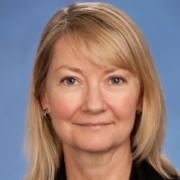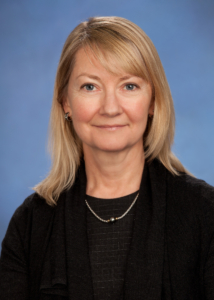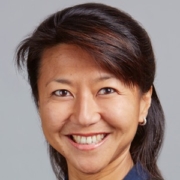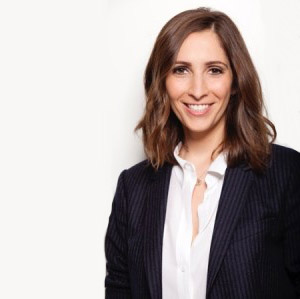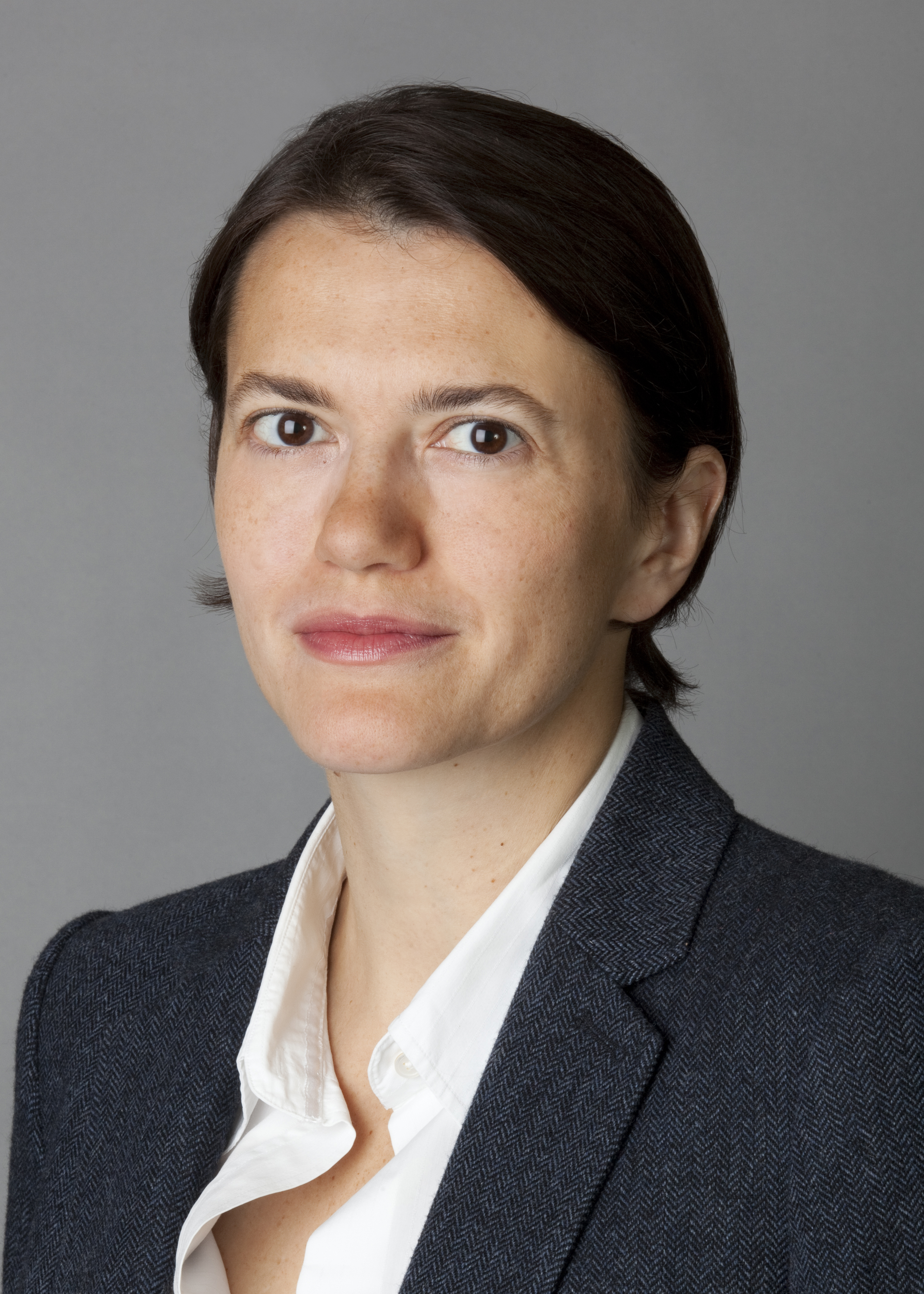Voice of Experience: Elizabeth Byrnes, Managing Director, Goldman Sachs Engineering
Elizabeth Byrnes knows that you have to find your voice to be successful in your career. “You can have a great idea but unless you share it by confidently speaking up in the workplace, you won’t be able to effectively influence people and shape outcomes. Engineering is an interactive process — every day teams come up with new ideas and brainstorm together to refine them. When you exhibit passion and enthusiasm for your work, others are excited to work alongside you.”
She says that it took her awhile to find a leadership style that worked well and was consistent with her personality and values. “When I was young, I thought I needed to mimic how others led, but over time I figured out that while I could incorporate qualities I admired in others, I needed to stay true to who I am and incorporate them into my own personal leadership style, which I continue to refine and improve to this day.”
Building a strong, diverse network of colleagues and friends has also been an essential ingredient in Byrnes’ success. “I am more effective when I have people to bounce ideas off and people who have perspectives and skills different than my own. Relationships across our firm and throughout the industry and community at large are super valuable. These are people I can call on to provide advice and help think through and solve hard problems.”
Artificial Intelligence Paves the Way to Wall Street
Byrnes knows first-hand that you’re not always going to be aware of all existing job possibilities initially upon entering the workforce. For example, when she was pursuing her PhD in psychology, she developed an expertise in artificial intelligence and expert systems after analyzing ways to have computers interpret and summarize psychological tests. At the time, most of her colleagues saw computers as number-crunching machines not well suited to the human sciences. But, Byrnes saw an opportunity for computers to help with patient care and speed diagnosis. Not everyone in the psychology industry agreed, she says, and resistance to change was high. “I learned that it’s not enough just to have a great idea, you have to understand how to drive adoption and influence change—a very important lesson!”
After completing her PhD, she joined her professor’s software start-up in the healthcare field before eventually joining Wall Street.
“Wall Street and the financial services industry are very open-minded to technological innovation, which is refreshing and exciting,” she says. “I realized this was an industry I could grow and thrive in, and I have. There is never a shortage of complicated problems to solve and super smart and motivated people to help solve them, which means I am never bored and love my work.”
Upon joining the financial services industry, she initially worked at Manufacturers Hanover and Bankers Trust before joining Merrill Lynch, where she spent 11 years in various technology and leadership roles. She moved to Goldman Sachs in 2007 and today leads the Global Investment Research Technology group.
“When I think about what’s important now in the industry, most roads lead to data. You can’t make decisions without good data, and there has been an increase in appreciation for data modelling, analytics, entitlements and governance,” Byrnes said. “A common thread is ensuring individuals have timely access to the information they need to make informed decisions, while at the same time protecting and safeguarding this data.”
Building a Pipeline by Reaching Girls Before They Opt Out
As co-head of the Americas Women in Technology Network (WIT), Byrnes is committed to growing diverse talent and reaching and inspiring the next generation of women computer engineers. She knows firsthand the importance of building a pipeline – women only comprise 17 percent of computer science graduates in the United States. “We have to build a foundation, and the numbers aren’t where we need them to be. We have to reach back into the junior high schools and high schools to encourage girls to learn to code and to pursue studies in computer science at university,” she says. Meeting this need spurred her to champion Goldman Sachs’ partnership with Girls who Code (GWC).
Goldman Sachs was the first financial services firm to partner with GWC in 2013. Since that initial partnership, Goldman Sachs hosts 40 high school girls each summer at the firm’s New York headquarters. Over 100 WIT volunteers serve as mentors, curriculum advisors, event coordinators and speakers over the summer. “It is a true team effort,” says Byrnes. But this engagement doesn’t stop once the summer program ends. “We can’t just teach them when they’re 16 and then step back, because there are too many opportunities for them to get discouraged along the way,” Byrnes points out.
With her WIT colleagues, she helped create an alumni program to host quarterly meet-ups so the girls have an opportunity to stay connected via a supportive community of friends and role models and continuously learn about technical topics and careers. Over the summer, 80 girls attended an alumni event that focused on cybersecurity.
“Having these students see other women in technical roles is a very powerful way to give young women confidence and introduce them to the community, which is good for the industry overall. We need to reach these girls before they opt out.” Once girls enter the engineering workforce, she encourages them to stay technical. Often, women join the workforce with communications and people skills, and then are routed into project management or business analyst roles too early, which can short circuit their technical learning.
She encourages her colleagues to mentor young women, which she believes is critically important to success and retention. “We have to link arms as a community and help the next generation,” she says. “I felt like I had to make a go of it on my own and it doesn’t have to be that way. We can change the industry by encouraging more young women to enter computer science and then offering the coaching and support system to retain them.”
Byrnes is also active with organizations such as Columbia Girls in STEM and Lesbians Who Tech. She recently attended the annual Grace Hopper conference, which convenes female engineers and students to discuss updates in the industry.
Outside of work, Byrnes enjoys horseback riding with her daughters, playing with her golden retrievers and cooking and entertaining with her husband. “Being with family and friends is the best,” she says.

